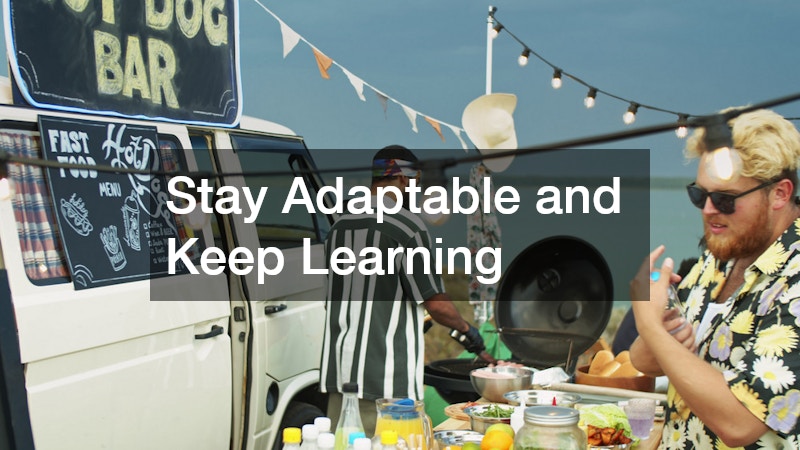Starting a food trailer business can be an exciting and rewarding venture for aspiring entrepreneurs who are passionate about food and customer service. Unlike traditional brick-and-mortar restaurants, food trailers offer flexibility, mobility, and a unique opportunity to bring your culinary creations directly to customers in different locations. Whether you’re an experienced chef or a first-time business owner, launching a food trailer can be your gateway into the thriving food service industry.
Define Your Concept and Menu
Every great food trailer starts with a strong concept. What kind of cuisine will you serve? Will it be gourmet burgers, tacos, vegan dishes, or desserts? Choose a concept that reflects your personal passion and meets local demand. Your menu should be focused and easy to execute within the limited space of a trailer. A smaller menu not only helps with efficiency and prep time but also allows you to maintain quality and consistency.
Think about what makes your offering unique. Is it your flavors, your cooking style, or your cultural inspiration? Whatever it is, make sure it’s clear in your branding and menu presentation. Keep customer experience in mind when designing your food offerings—items that are easy to eat on the go are often a better fit for the food trailer model.
Plan Your Location Strategy
Location is key for food trailers. Unlike stationary restaurants, you have the freedom to move your trailer to where your customers are. Research high-traffic areas in your city such as parks, business districts, college campuses, or farmer’s markets. Look for spots where foot traffic is heavy and competition is low.
Local events, festivals, and community gatherings are also great opportunities to gain exposure and serve large crowds. Create a weekly or monthly route and promote your schedule online so your customers know where to find you. Having a consistent presence in certain areas can help you build a loyal customer base.
Get Proper Licensing and Health Permits
Before hitting the streets, ensure you meet all the local and state requirements for operating a food trailer. This typically includes health inspections, food handler certifications, and permits for mobile vending. You may also need a business license and liability insurance, depending on your location.
Health and safety are top priorities when it comes to mobile food service. Keep your trailer clean and well-organized, and make sure all staff members follow food safety protocols. This not only ensures compliance but also builds trust with your customers.
Invest in a Well-Equipped Trailer
The layout and functionality of your trailer will have a big impact on your daily operations. A good food trailer should be compact yet efficient, with enough space for cooking, prepping, and serving. It should also have proper ventilation, refrigeration, and storage.
Consider the workflow as you design your trailer’s interior. Your equipment and setup should allow for a smooth transition from order taking to food preparation to delivery. A clean, professional-looking trailer also enhances your brand image and can attract more customers.
Build a Strong Brand
Your brand is more than just your logo or trailer design—it’s the overall experience you offer to your customers. From the food you serve to the way you greet people, everything should align with your brand identity. Choose a memorable name, design eye-catching visuals, and create a consistent tone across your signage, menu, and social media platforms.
Customers often choose food trailers based on visual appeal and word of mouth. Make sure your trailer looks inviting and your messaging is clear. Friendly service, quality food, and a distinctive vibe will set your trailer apart in a crowded market.
Market Your Business
Marketing plays a crucial role in the growth of your food trailer business. Start by building a presence on social media platforms like Instagram, Facebook, and TikTok. Share behind-the-scenes content, daily specials, customer testimonials, and your location updates to engage with your audience.
Consider collaborating with local influencers, food bloggers, or other small businesses to expand your reach. Encourage happy customers to leave reviews online and tag your trailer in their posts. Email newsletters and SMS alerts can also be effective tools to keep your regulars informed about your schedule and new offerings.
Stay Adaptable and Keep Learning
One of the greatest strengths of the food trailer model is its flexibility. Be ready to adapt your menu, change your locations, or try new marketing strategies based on feedback and results. Monitor which menu items are popular, which locations perform best, and what times of day bring the most traffic.
Take customer feedback seriously and use it to improve your food, service, and operations. Attend food truck meetups, workshops, and industry events to learn from other mobile food vendors. The more you engage with your community and grow your skills, the better positioned you’ll be for long-term success.
Launching a food trailer business is a journey that combines creativity, hard work, and customer connection. With the right concept, solid planning, and a passion for great food, your food trailer can become a local favorite and a thriving part of your community. Keep your standards high, stay consistent, and never stop evolving—and your food trailer dream can quickly become a flavorful reality.




